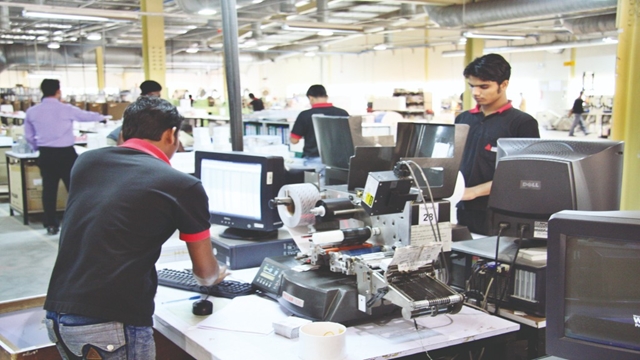FT online
Published:2019-02-28 22:22:41 BdST
WB report: Quality education key to developing skilled Bangladeshi workforce
Bangladesh has to invest more in quality education to develop a skilled workforce pool, as it is difficult for people to get good jobs without the required educational qualifications, suggests a World Bank (WB) report.
“The country should address this learning crisis by investing more in education and investing more effectively," the report urges, adding that despite Bangladesh’s remarkable success in providing primary education to nearly all children, the quality of education "remains a concern”.
Yesterday, the World Bank Dhaka office released the World Development Report 2018: Learning to Realize Education’s Promise.
"Many young students in Bangladesh, as in other low and middle-income countries, find it hard to get good jobs because they leave the education system without the required skills to read, write, or do basic math," says the global lender.
As per the report findings, in Bangladesh, children can expect to get around 11 years of schooling, but they lose about 4.5 of these years due to the poor quality of schooling.
For example, 35% of third grade students scored too low to even be tested on reading comprehension in Bangla, and only 25% of fifth grade students in the country passed the minimum threshold in mathematics.
The key factors behind this predicament are: lack of access to early childhood development programs, the low quality of teaching practices, challenges related to poor school management, and low levels of overall spending on public education.
World Bank Country Director for Bangladesh and Bhutan, Bob Saum, said: “Bangladesh is among the few countries to achieve gender parity in school enrollment, with more girls in school than boys. The country has the potential to create a globally competitive workforce by further investing in education.
“Bangladesh’s share of public spending on education is lower than the South Asian average, and about half of Malaysia’s share of spending on education. But it’s not just about the overall spending; it’s also about how the funds are being used. Systematically measuring whether schooling is translating into learning is critical for ensuring that education spending is effective,” Saum added.
World Bank Senior Director for Education, Jaime Saavedra, said that a big reason why schooling does not translate into learning is because in many countries "there is a need for continued strengthening of investment in young children”.
He explained: “Children from poor and vulnerable groups are left behind as early as six months of age as they do not have the right nutrition and the right stimulation. These shortcomings have a large impact as children grow older."
Saavedra further said that quality, early childhood development programs are "fundamental and vital investments for Bangladesh to tackle the learning crisis.”
The WB report recommends assessing learning to keep track of progress, improving school systems by attracting high-quality teachers and improving the learning process, motivating children to come to school, and using data on learning to mobilize all stakeholders—from the private sector to policymakers and parents—to improve quality of learning for a more vibrant and skilled workforce in the future.
The State Minister for Foreign Affairs, Md Shahriar Alam, policymakers, officials, and other education experts, attended the launching ceremony of the report organized in collaboration with the Lego Foundation.
Unauthorized use or reproduction of The Finance Today content for commercial purposes is strictly prohibited.


